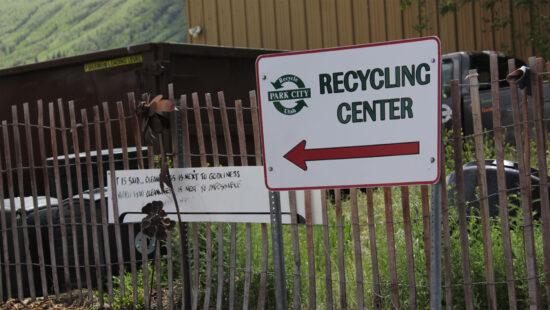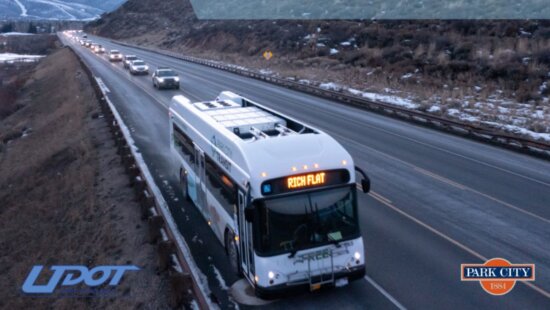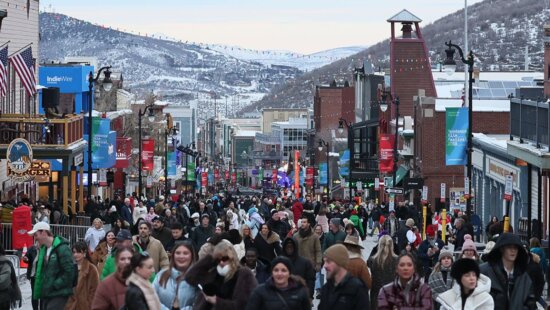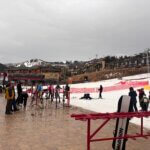The Olympics of Development: Where 2025 election candidates stand on Park City’s golden future

FIS Freestyle Ski World Cup Moguls Course Photo: Deer Valley Resort
As Park City prepares for its 2025 municipal election, we’re launching a new series: One Question, Many Voices designed to give voters a direct look at where each candidate stands on issues that matter most to the community. In each installment, we pose a single, critical question to all candidates running for mayor and city council, then publish their unedited responses side by side.
Question 1:
With the 2034 Olympics on the horizon, what specific policies or investments would you prioritize to ensure Park City benefits long-term—without compromising affordability, livability, or its historic identity as a mountain mining and ski town?
Candidate responses are in random order.
Park City will elect a mayor and two city council members during the 2025 Municipal Election, which will be held November 4, 2025. Pursuant to state law, a Primary Election for the council seats will be held on August 12, 2025, since more than twice the number of candidates filed than are to be elected. More 2025 Municipal Election Info.
Question 2: Park City candidates on growth: defending local control amid state pressure
Question 3: Protecting what makes Park City special: Candidates weigh in on growth and housing
Candidates for Mayor - 4 Year Term
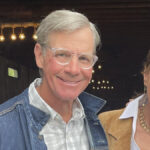
Jack Rubin
Running For: Mayor
Visit Candidate WebsiteThe first step is to learn from the past. We co-hosted a successful Olympics in 2002 and many of the key planners still live here. I would convene a small advisory group of those individuals to revisit what worked, what did not, and how we might better serve the long-term interests of residents this time around.
Utah retains all its Olympic infrastructure. That means we will likely not see the large-scale federal investment that usually accompanies host cities. The long-term risks to affordability and livability are real, and we are still living with the consequences of the last Games. The question before us is not whether we co-host, but how we participate? Do we scale back and preserve community function? Or do we go all out and stage another spectacle in Park City’s core, potentially at cost to local businesses? That conversation belongs to the residents, not to people more concerned with Olympic committee seats than community outcomes.
Olympics or not, we need investments that serve Park City well before and after 2034. That includes a robust public transportation network that reduces car reliance. Aerial transit from Quinn’s Junction to Snow Park holds promise. So does reimagining SR 248. But above all, we need a town-wide circulation plan that respects our small-town feel while serving both residents and visitors. The Olympics should be a means, not an excuse, for progress that endures.
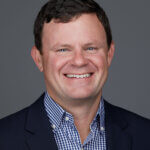
Ryan Dickey
Running For: Mayor
Visit Candidate WebsiteThe 2034 Olympics represent an opportunity for Park City to enhance our quality of life and double-down on our historic character as we showcase our community to the world. Park City remains unique in the Wasatch Back—and the West more broadly—in the preservation of our historic Main Street and our direct connection from our downtown core to outdoor recreation. This is an integral part of what locals and visitors alike cherish about Park City, and it should always be protected.
Rather than incentivizing growth, the Olympics are a catalyst for obtaining outside resources that will mitigate the impacts of growth we already feel today. Olympic investments will be primarily transportation-related, as on a practical level, the Olympics move the Wasatch Back to the “head of the line” in state and federal granting queues. As one example, the city’s “Recreate 248″ study—a required building block for eligibility for future federal grants for things like bus rapid transit and flex lanes—is already underway.
Critically, Olympic-related investments should not be focused solely on the two weeks of the games themselves, but rather on investments that continue to deliver for the community once the Games are over.
Candidates for City Council - 4 Year Term
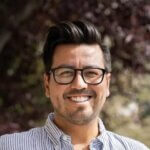
Diego Zegarra
Running For: City Council
Visit Candidate WebsiteThe Olympics will bring global attention and investment to Park City, but if we’re not intentional, locals will pay the price in housing costs, traffic, and displacement due to affordability. It seems as if we are already a bit late. Given that we’ve lost Sundance, and now with the Kimball Arts Center moving to 84098, this issue could not be more urgent. I would prioritize investments that serve us now and endure beyond 2034. That means: doubling down on regional transit solutions that reduce car dependency; securing land for deed-restricted workforce housing; and codifying protections for neighborhoods and community-serving businesses. I will push for legally binding community benefits agreements tied to Olympic-related development so that we’re not just hosting the Games, but building a legacy Parkites can be proud of.

Ian Hartley
Running For: City Council
Visit Candidate WebsiteThe 2034 Olympics provides a unique and valuable opportunity for us to build infrastructure that supports our identity and improves our quality of life. From housing, recreational facilities, and transportation and transportation solutions, Olympic funding and momentum will allow us to shape the future of our identity in a meaningful and authentic manner. After attending the Paris Olympics last summer, I can say that public transportation, local volunteerism, and well-designed venues are keys to success. Thankfully, these are all things our community values.

Beth Armstrong
Running For: City Council
With the 2034 Olympics less than nine years away, we have a once-in-a-generation opportunity to make decisions that will benefit Park City long after the closing ceremony, but we’ve got to get it right. I’d prioritize thoughtful, lasting transportation improvements that ease congestion for locals, not just visitors. We should be open to investigating new and innovative approaches to moving people, whether it’s dedicated lanes for BRT, or Vanpools for our local workers. We need to capture cars before they get into town and move them to buses. We need to continue to address affordable housing, so the people who make our community run can continue to live here. And make it possible for first time homeowners to purchase starter homes, making this a priority so that our kids can afford to move back home. And above all, we must protect what makes Park City special: our historic character, open space, and mountain-town feel. Any Olympic investment should leave a legacy, things like community spaces…think Bonanza Park, which we now have to pivot on with today’s announcement or programs that serve us well into the future.
And let me be clear: Park City needs a strong voice at the table. We can’t afford to sit back and let others decide for us. This is our town and we should shape what its future looks like, together.

John "J.K." Kenworthy
Running For: City Council
Visit Candidate WebsiteThe last time the Olympics came to town, Main Street was closed to cars and packed with people. It was electric. Transit actually worked. It was fun. But if you talk to the folks who ran shops and restaurants, they’ll tell you the crowds didn’t spend much. People were here for freebies and pin trading, not to support local business. And after the Games, real estate went nuts. Prices skyrocketed, and working families got squeezed out. We can’t let that happen again.
So here’s how we make 2034 work for us this time:
- Build the gondola from Richardson Flats to Snow Park. It’s an Olympic venue and a no-brainer. Get cars off the road and give visitors and skiers a direct, scenic ride into town. That’s infrastructure with staying power.
- Establish a dedicated Kimball Junction area park & ride just for PCMR (another Olympic venue) and Old Town. Our transit needs are specific. Let’s solve our problems with our systems and with Summit County’s collaboration.
- Bring back the mine tours. We’ve paved over enough of our past. Reopen Spiro, Mine Bench, or both, and let people experience Park City’s roots, not just a plaque on the outside of an old building.
- Give locals the spotlight. Yes, the Olympics come with exclusive vendor contracts, but that doesn’t mean we can’t carve out space to show the world what Park City is really about. Think a pop-up village showcasing our restaurants (one dish each), local artists, indie ski brands (including the one moving into Prospector). They are the real soul of the town. We don’t have to be invisible just because the IOC signs a deal with Coca-Cola.If we’re going to host the world, let’s do it on our terms. Preserve what makes us special, make smart investments that outlast the Games, and put the spotlight back on the people who make this place what it is.

Danny Glasser
Running For: City Council
Visit Candidate WebsiteHosting another Olympics is an opportunity, but only if we lead with intention. I will prioritize investments that leave lasting value for residents, not just visitors. That means expanding public transportation and strategic parking solutions to reduce traffic and parking strain, upgrading infrastructure in a way that supports year-round use, and protecting open space from overdevelopment. I’ll also advocate for Olympic planning that directly supports our workforce, such as affordable housing near transportation hubs and employer partnerships. We can showcase Park City on the world stage without compromising its authenticity.

Tana Toly
Running For: City Council
Visit Candidate WebsiteStart with Collaborative Planning
We’ve already created a working group that includes Summit County, our local resorts, the Chamber, and city leadership to begin early coordination. This committee——is focused on aligning values, logistics, and infrastructure goals before decisions are made without us.
Non- Competitive Venue like 2002
One key decision: do we want to be a non-competitive venue again, like we were in 2002? If that’s the direction, we need to take action now to prepare Main Street.
Ensure Any Olympic Investment Leaves a Legacy for Locals
Every dollar spent must enhance long-term livability. That means transportation upgrades that work beyond the Games. We’ll need strong lobbying support to lock in state and federal funding.
Create a Shared Vision with the Resorts
Our resorts are at the heart of Olympic success, focus on ensuring alignment between resort operations, vision and community needs. There must be a shared strategy, not silos, if we’re going to get this right.
Leverage Local Knowledge Don’t Reinvent the Wheel
Park City is filled with people who helped run the 2002 Games. We should hold public town halls to collect stories and strategies from those who’ve done it before, what worked, what didn’t, and what we must do differently
Learn from Host Cities
We should send a Park City delegation to Milan-Cortina 3–6 months after their Games next year. It’s a unique opportunity to learn how a community managed the Olympics in a modern era—what infrastructure worked, what partnerships mattered, and what lessons apply to us.

Molly Miller
Running For: City Council
Visit Candidate WebsiteIf given the honor to serve on Park City Council, I’d prioritize first a small, temporary investment to put the “park” back into Bonanza Park: make it green and welcoming while our community figures out the very best use of the space.
I’d also:
Push forward on the wonderful work happening in transportation, with a focus on attainable solutions to mitigate traffic challenges.
Ensure China Bridge is rebuilt.
Continue the vision to revitalize Swede Alley.
Create a coalition of Park City experts who can provide wisdom through their earned experience to the Council and City Hall. Preserving access to the people who made Park City what it is today helps us move forward with confidence on projects years in the making. A respectful foundation – built on the supportive shoulders of past visionaries – helps us stretch even higher to build a future we can all be proud of.
Last – and certainly not least:
Relentlessly work to strengthen partnerships at every level to ensure we can move forward on all of the actions needed so Park City is ready to host the world for the 2034 Games.

Jeremy Rubell
Running For: City Council
Visit Candidate WebsiteThe 2034 Olympics will provide an opportunity for us like no other, where we welcome to the world to our mountain paradise. It’s important we look after Park City as a community first, and not forget on our role as a local government related to health, safety, and welfare. The benefits to our recreation culture and warm, inclusive nature are immeasurable.
Our municipal teams are critical to successful events on any scale and continue to do an outstanding job for us all, including public works keeping roads clear, transit moving people around, utilities keeping the water flowing, events liaising between our commercial and residential sectors, and our public safety teams such as police and fire doing what they do best. It will take partnerships across the board.
Additionally, we will have the opportunity to partner with Olympic organizing committees, state, and Federal delegations, benefiting our infrastructure through innovative (and potentially expensive) transit solutions focused on relieving traffic on our entry and exit corridors. Other infrastructure solutions include burying power lines, communications projects such as fiber installations, and upgrading and or relocating the power substation right in the middle of our soon-to-be revitalized Bonanza Park neighborhood. We prepared extensively for this project by partnering with Rocky Mountain Power to bury high-voltage transmission lines from Boot Hill to Bonanza Park—an effort that not only improves reliability but also provides significant wildfire mitigation. Looking ahead, our modular undergrounding system is designed to support future power delivery upgrades from day one.
These upgrades may or may not be required to host the games, they may just contribute towards an improved experience. However, they are critical for Park City’s long-term success and why not look to 2034, and its potential funding contributions combined with access to expertise we generally go to market for, as a spark for our future?
